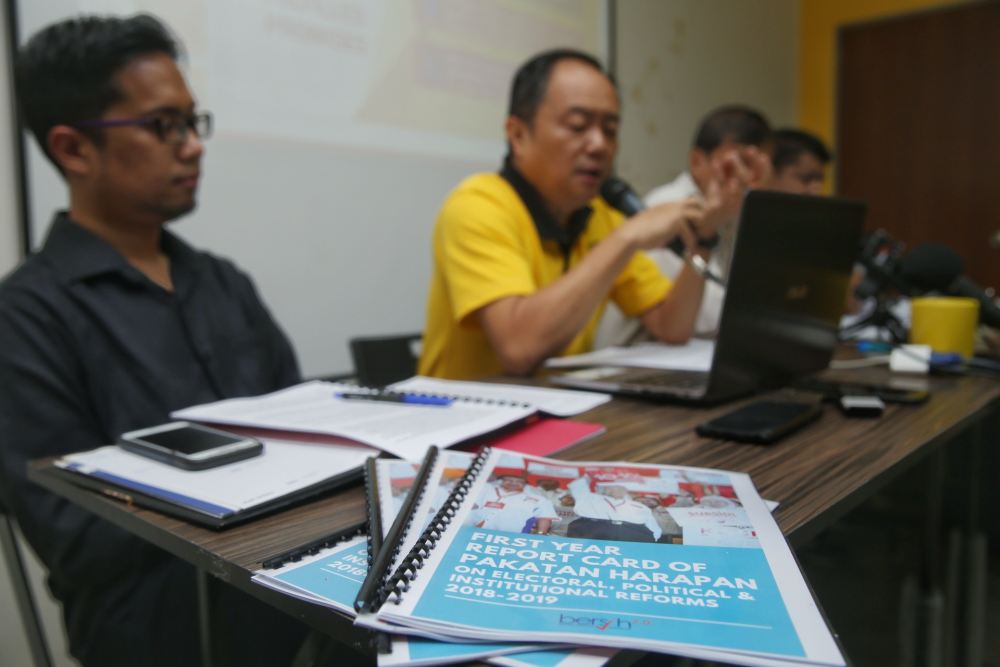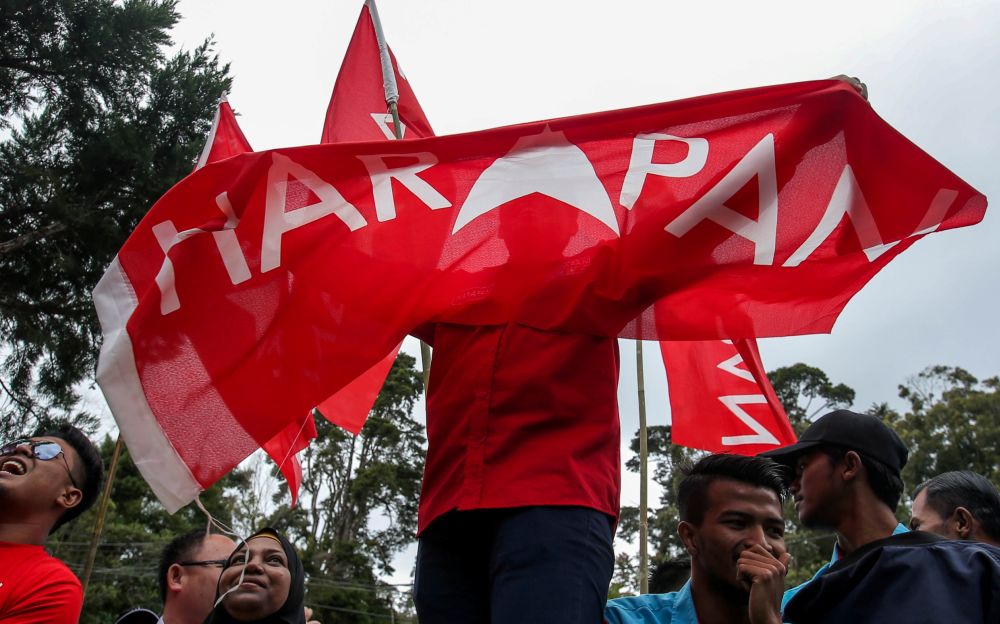Here’s How Pakatan Harapan Scored In A Report Card Of Their First Year Of Power
Pakatan "surpassed expectations" but only scored a passing grade of 36.4%.
Bersih 2.0 has released an "objective appraisal" on the first anniversary of the Pakatan Harapan (PH) government, giving it a passing grade of 36.4 per cent
In its analysis titled "First Year Report Card of Pakatan Harapan", the electoral watchdog's chairperson Thomas Fann says that while "considering that this is only the first year of a five-year term and that many of the reforms require legislative and constitutional amendments, the PH government has made commendable progress in reforming the institutions that guard our parliamentary democracy."
According to the 28-page report, the scoring was based on six specific promises and 44 sub-promises which were related to institutional reforms.
Of the 44 sub-promises, Bersih noted that six were fulfilled, another six were partially fulfilled, eight are still in progress and another eight were barely fulfilled, while 14 others were not fulfilled with two sub-promises were either broken or reversed.
Bersih said that it is "satisfied with the progress" the Government has made in the area of electoral and parliamentary reforms
Bersih noted in its report that PH has done well in several areas, including a new and progressive Election Commission (EC), a reform-minded Dewan Rakyat speaker, and a fulfilled promise to shrink the size of the Prime Minister's Department.
"Bersih 2.0 is satisfied with the progress made in the area of electoral and parliamentary reform in the first year of PH, especially with the new leadership of the EC, which has started the process of cleaning up the electoral rolls, improving the conduct of elections, allowing election observers to observe the past eight by-elections in a transparent manner and overall better engagement with stakeholders like political parties and civil society.
"Parliament under the leadership of Speaker of Dewan Rakyat Mohamad Ariff is also undergoing important reforms like the setting up of the Parliamentary Select Committees and Caucus, and a more open institution where the public and civil society are engaged," the electoral watchdog said.
The report card noted that the number of Ministers in the Prime Minister's Department (PMD) has been lowered to a maximum of three only, as promised.
The promise to reduce the allocation to the PMD's from more than RM17 billion per annum to less than half, that is RM8 billion, has also been fulfilled.
However, Bersih is concerned with how several critical reforms in the area of electoral reform are yet to be codified in the law
The Coalition for Clean and Fair Elections reminded that the PH Government should expedite these reforms that do not require constitutional amendments.
"For structural reforms that require amendments to the Federal Constitution, bi-partisan support should be sought as such reforms, like the institutionalizing of the independence of the EC, MACC, JAC and the strengthening of Parliament, would be in the interest of the opposition," Bersih noted in its report that was released today, 9 May.
Bersih also made several recommendations on electoral, parliamentary, and institutional reforms for the PH Government
Among electoral reforms, it made recommendations such as:
1. A bill should be introduced in the Parliament to allow the EC to have operational independence with its own budget and the power to select its own staff. The independence of the EC from influence from the Executive and be made accountable to the Parliament. The bill should also empower the EC with some level of power to act against election offences.
2. The EC should reach out to disenfranchised registered voters who are inconvenienced on polling days and are unable to cast their votes without incurring a great cost. The postal or absentee voting process should be improved to allow outstation voters, voters separated by the South China Sea, overseas voters (including those working in Singapore), and even military voters to be considered as postal or absentee voters.
3. A new Parliamentary Select Committee on Electoral Reform should be formed to review current election laws and review the fraudulent delimitation exercise of 2016-2018 with the intention of proposing legislative amendments to prevent serious malapportionment and gerrymandering of electoral constituencies in future delimitation exercises.
Among parliamentary reforms, Bersih's recommendations include:
1. PH government should introduce the Parliamentary Services Act immediately with public consultation in order to make Parliament truly independent and serve as an effective check and balance institution in our democracy.
2. The Standing Order of Parliament should be amended to make the law-making process more consultative and transparent. The public should have access to a bill in the Parliament’s website within half an hour after the bill has gone through the first reading in Parliament.
3. The Dewan Negara should be empowered to serve as an effective check and balance to the Dewan Rakyat and comprises of elected members from the States in the Federation, Sabah, Sarawak and minority groups. Their composition should be such that it gives equal voice to the smaller states and to under-represented groups sitting.
You can view the full report by Bersih here.

